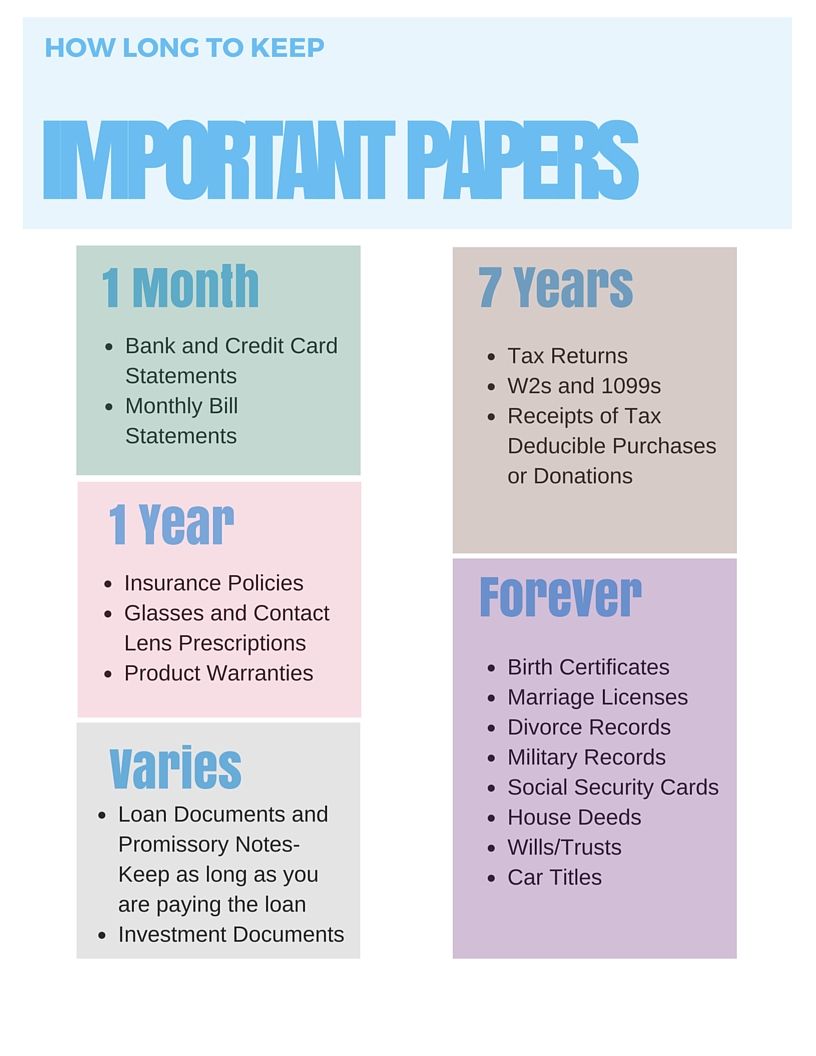7 Essential Tips for Paperwork Retention Periods

Dealing with paperwork can often feel like a never-ending battle, especially when deciding how long to keep various documents. Whether it's for personal or business purposes, understanding the retention periods for different types of records can save you from potential legal issues, hefty fines, and unnecessary storage costs. Here are seven essential tips to guide you through the maze of paperwork retention:
1. Understand Legal Requirements


Different documents have varying legal retention periods. Here’s a breakdown:
- Tax Records: In many countries, tax authorities require you to keep your tax returns and related documents for at least 6 years.
- Bank Statements and Credit Card Receipts: Typically, these should be kept for 3 to 7 years.
- Employment Records: For payroll, keep records for at least 3 years, while employment applications should be retained for 1 year.
- Legal Contracts: These should be kept indefinitely or at least for the duration of the contract plus an additional period (often 7 years after the contract ends).
🔍 Note: Always check with your local laws or a legal advisor as retention periods can vary by jurisdiction.
2. Organize for Easy Access

The importance of organizing your records cannot be overstated:
- Use a clear filing system where documents are categorized by type, year, or event.
- Digital archives can be scanned and indexed for quick retrieval.
- Keep important documents in a fireproof safe or secure cloud storage.
3. Use the 3-2-1 Backup Rule

To ensure your documents are safe, follow the 3-2-1 backup rule:
- 3 copies of any important data.
- 2 different media - one for the original, and one for backup (e.g., hard drive and cloud).
- 1 offsite backup to protect against local disasters.
4. Shred When Safe to Do So

Securely destroy documents once their retention period has expired to prevent identity theft:
- Use cross-cut shredders for sensitive information.
- Check with compliance officers if you’re unsure about destruction policies.
5. Evaluate Business Records

Businesses need to retain various types of records:
| Document Type | Retention Period |
|---|---|
| Accounting Records | 6-10 Years |
| Corporate Minutes and Resolutions | Indefinite |
| Employee Contracts | Duration of Employment + 7 Years |
| Customer Records | Duration of Relationship + 6 Years |

6. Paperless Approach

Going digital not only reduces clutter but also:
- Enhances document searchability.
- Reduces physical storage needs.
- Increases security with encryption and access control.
7. Regularly Review and Update

Set a yearly reminder to:
- Review which documents can be shredded or archived.
- Update your retention policy based on changes in law or business practices.
In summary, managing paperwork retention requires a strategic approach. By understanding legal obligations, organizing documents effectively, ensuring secure backups, shredding appropriately, evaluating business records, adopting a paperless approach where possible, and regularly reviewing your records, you can maintain compliance and reduce the clutter and risk associated with outdated documents.
Why is it important to retain tax documents for 6 years?

+
Many tax authorities require records to be kept for at least 6 years to allow for audits and disputes resolution. This time frame provides a reasonable period within which most tax disputes can be settled.
Can I shred documents after their retention period has ended?

+
Yes, once the legal and business purposes for retaining documents have expired, shredding them is advisable to protect against identity theft or data breaches.
What if my business has international operations?

+
If your business operates internationally, you’ll need to comply with the document retention laws of each country where you conduct business. It might be necessary to keep records for the longest period required by any jurisdiction involved.
Is it safe to store important documents online?

+
Yes, storing documents online is safe if you use secure, encrypted cloud storage services with strong privacy policies and access controls. Ensure regular backups are made to prevent data loss.
How can businesses benefit from a paperless approach?

+
Going paperless can streamline document management, reduce costs associated with physical storage, improve document security, and facilitate faster retrieval and sharing of information.